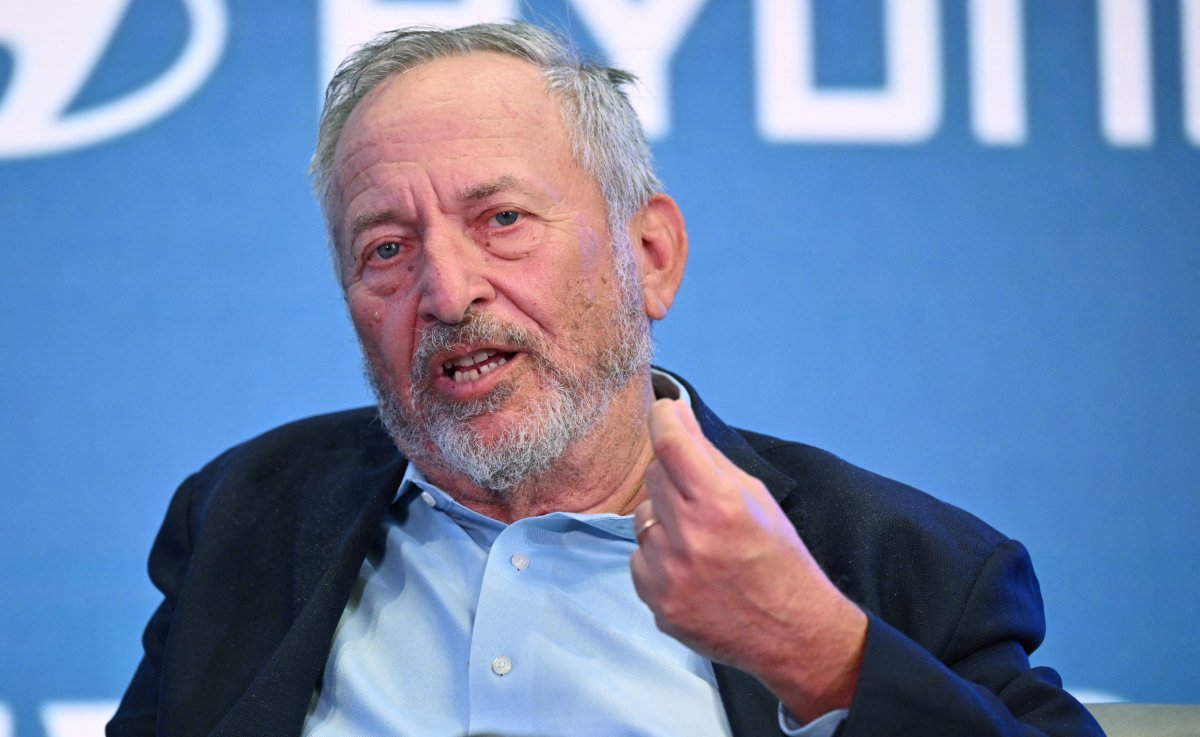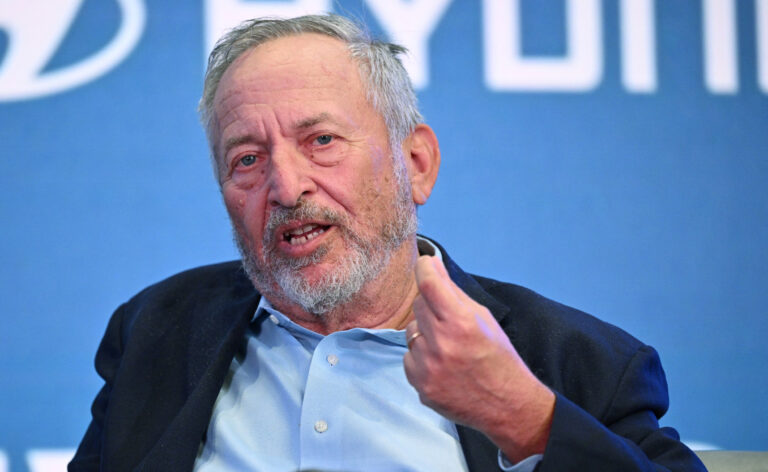Former U.S. Treasury Secretary Larry Summers warned that President Donald Trump may be trying to “scapegoat” Federal Reserve chair Jerome Powell in the event the economy slows down enough to hit a recession.
“He’s looking to set up a scapegoat if the economy performs badly,” Summers said during an appearance on ABC News’ This Week. “That’s what this attacking chairman Powell is really about. It’s not really about trying to change policy.”
Why It Matters
Trump has made tariffs the centerpiece of his economic and foreign policy plans, using trade negotiations to try and end conflicts and completely reshape the international trade landscape to more heavily favor the United States.
However, many economists and business leaders have warned that Trump’s plan will cause a recession as the tariffs raise prices for Americans, which could deter buying and prompt more Americans to hold onto their money.
Trump has therefore urged Powell to cut the interest rate in order to spur the economy and get people to spend more money, but Powell has resisted—much to Trump’s frustration.
What To Know
The stock market took a hit on Friday after Trump signed a series of executive orders to impose tariffs on over 90 countries, ranging from 10 to 41 percent.
The July Jobs report showed that growth had slowed, showing just 73,000 new jobs—well under the projected 100,000 that the Dow Jones had estimated. Additionally, the jobs reports for May and June were hit with significant revisions that showed very weak growth across those months.
Trump fired Dr. Erika McEntarfer, the Commissioner of the Bureau of Labor Statistics (BLS), and accused her of manipulating the reports for “political purposes.”
Summers, who served in former presidents Bill Clinton’s and Barack Obama’s administrations, suggested on Sunday that Trump is likely also trying to line up Powell as a scapegoat should the economy continue to struggle, even though Trump appointed Powell during his first term in office.
“I think that this kind of political Fed bashing is a fool’s game,” Summers said. “The Fed doesn’t listen, so short-term interest rates aren’t going to be different because of it.”
He continued: “The market does listen, and so longer-term rates are going to go higher, which is going to make it more expensive to buy a house. This is hurting the economy, not helping. I think the president understands that and what the president is doing is recognizing that, for all kinds of reasons, of which his policies are very important ones, the economy is at a lot of risk.”
Summers also expressed surprise that more people hadn’t responded within the administration to McEntarfer’s firing, saying that the decision to remove her “is way beyond anything that Richard Nixon ever did.”
When Nixon dismissed special prosecutor Archibald Cox during the Watergate Scandal, it prompted several officials to resign rather than fire Cox, causing what was known as the “Saturday Night Massacre.”
Trump faced a similar issue in February, which has been likened to Nixon as the “Thursday Night Massacre,” when Department of Justice (DOJ) officials resigned rather than execute an order to dismiss federal corruption charges against New York City Mayor Eric Adams.
No one has yet resigned in response to McEntarfer’s firing, but Summers indicated that he sees the firing as a scapegoating as well, saying: “These numbers are put together by teams of literally hundreds of people following detailed procedures that are in manuals.”
“There’s no conceivable way that the head of the BLS could have manipulated this number,” he added. “The numbers are in line with what we’re seeing from all kinds of private sector sources.”
Summers remains cautious about suggesting the economy is headed for a recession. Instead, he said the economy is at “stall speed,” which “could tip into recession,” but that “wouldn’t be my prediction right now.”

Mandel Ngan/AFP via Getty Images
What People Are Saying
White House Spokesman Kush Desai told Newsweek in an emailed statement: “The White House respects the independence of the Fed in carrying out its monetary policy objectives.”
“The President has made his view clear: the Federal Reserve’s stated objective is to set monetary policy based on what the data show – that data clearly shows that President Trump’s supply-side policies have swiftly tamed Joe Biden’s inflation crisis, which would be consistent with interest rate cuts,” Desai said. “And it’s not just President Trump and Republicans who are saying this: even prominent financial industry heavyweights are calling for the Fed to cut interest rates.”
President Donald Trump in a post on Truth Social on Saturday wrote: “‘Too Late’ Powell should resign, just like Adriana Kugler, a Biden Appointee, resigned. She knew he was doing the wrong thing on Interest Rates. He should resign, also!”
In a post from Friday, Trump wrote: “Jerome ‘Too Late’ Powell, a stubborn MORON, must substantially lower interest rates, NOW. IF HE CONTINUES TO REFUSE, THE BOARD SHOULD ASSUME CONTROL, AND DO WHAT EVERYONE KNOWS HAS TO BE DONE!”
Ernie Tedeschi, the former head of Yale University’s Budget Lab, wrote on X on Friday about McEntarfer’s firing: “I’ve worked closely with Erika. I know of no economist who is more data-focused & devoted to truth in statistics. She never shied from speaking truth to power when the data were disappointing. Nothing would be worse for US credibility than political meddling in our economic data.”
Update 8/3/25, 4:55 p.m. ET: This article has been updated with a comment from the White House.


